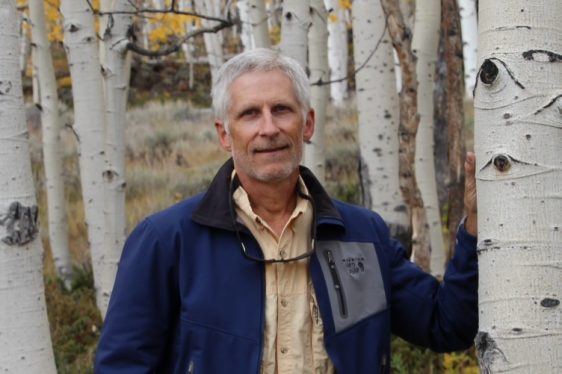Vilas Distinguished Achievement and Sorenson Professor (and former Associate Dean for Research)
College of Agricultural and Life Sciences | Department of Entomology
Hometown: Batavia, IL
Rick Lindroth is Vilas Distinguished Achievement Professor and former Associate Dean for Research at the University of Wisconsin-Madison. He is a broadly trained ecologist, with expertise in global change ecology (including climate change), biodiversity, plant-insect interactions, and plant chemical ecology. Rick has a personal interest in the interface of science and religious faith. He has authored over 200 publications, with support from the National Science Foundation, the US Department of Agriculture, and the US Department of Energy. He has been a Fulbright Fellow and is a Fellow of the American Association for the Advancement of Science, the Ecological Society of America, and the Entomological Society of America.
Talks:
Climate Change and the Pursuit of Truth in a Post-Truth World
More than any other arena of human endeavor over the last century, science has revealed the true nature of how the world works, and has fostered technologies that have transformed civilization. Yet now, in a world of individual truths and alternative facts, the value of science is being challenged like never before. And for no field of science is this more important than climate change, which threatens to unravel, within decades, the very fabric of civilization. Against a backdrop of climate-change science, Rick will explore the fundamental premises of science, why they predispose science to dismissal and denial, how humans engage with facts, and how to improve science communication across ideological, cultural and tribal divisions for the betterment of humanity and sake of the world.
Biodiversity Loss and Extinction
The earth is now entering its sixth major extinction event, with dramatic losses across all species groups. In this talk, Rick will address why biological diversity is important, why it is declining, and what steps can be taken to address this critical issue.
Natural is Not Benign. The Roles of Plant Chemistry in Ecology, Evolution and Human Nutrition
Plants produce thousands of compounds whose sole purpose is to defend them from pests and pathogens. This chemistry governs many ecological processes, from herbivory to ecosystem carbon sequestration. It is also the basis for human pharmaceuticals, “nutraceuticals” and ethnic/cultural cuisines. Rick will address how these compounds evolved and what are their current roles in ecology and human society.
